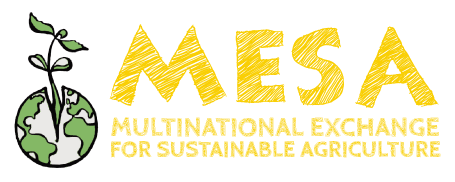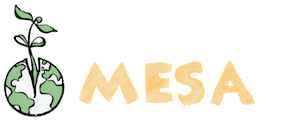<- Return to Listings | Copy | |
Host Training Plan
Horton Road Organics
| Name | Horton Road Organics, Inc. | [email protected] | |
| Steward(s) Selected | Stephen Gitau Muigua – | ||
| Training Start Date | 05/01/2023 | Training End Date | 10/31/2023 |
| Steward Training Hours per Week | 32-40 hours | ||
| Compensation (Stipend or Wage) | Regular SAGE Stipend – $700/mo. (MESA sends to Steward via our monthly Host fee, minus fed. taxes) | If Yes, how much/how often? | [1156] |
| Non-Monetary Compensation and Estimated Value | $1500/ mo. |
| Name of your Workers’ Compensation Carrier | Oregon SAIF |
| Will your Workers’ Compensation policy cover the Steward? | Yes |
| Number of Employees at training location | 9 |
| Number of Interns/Trainees/Apprentices at training location | 7 |
| Annual Revenue | $0 to $3 Million |
[Phase 1]
| Phase Name | Orientation to Farm | ||
| Start Date of Phase | 05/01/2023 | End Date of Phase | 06/01/2023 |
| Primary Supervisor during this phase | Debra Martin | Supervisor Title | Farm Owner/ Co-Manager |
| [email protected] | Phone Number | (541)925-3019 | |
| 1. Describe the Trainee/Steward’s role for this phase |
|
The trainee during Phase 1 will orient to the trajectory of the season’s curriculum, learn about organic farm philosophy and design, and be introduced to residential community guidelines and practices. |
| 2. Specific goals and objectives for this phase |
|
The trainee will become familiar with the 26 week curriculum and expectations regarding weekly study and hands on experience. Interns will learn about the basic framework for successful small scale organic farming and begin to conceptualize their own farm/garden project design (“faux farm””) to be presented at the end of the season. Trainees learn best organic practices and guidelines for early spring field work including transplanting and greenhouse propagation as well as hand raised bed construction. Trainees are introduced to community building practice in the residential training cohort including facilitating meetings and building supportive connection. |
| 3. Primary Supervisor’s qualifications |
|
Debra Martin, Farm owner/ co-manager and student supervisor |
| 4. What plans are in place for the Trainee/Steward to participate in cultural activities while in the United States? |
|
Trainee will be invited to attend workshops and gatherings offered by a number of local sustainable agriculture organizations including Rogue Farm Corps, Eugene Permaculture Guild, Young Farmers Collective, and Biodynamic Association. Trainee will participate in weekly on farm community meeting that includes social connection, education and food. |
| 5. Specific knowledge, skills, or techniques to be learned during this phase? |
|
Knowledge of organic farm philosophy and basic design |
| 6. How specifically will this knowledge, skills, or techniques be taught? Include methodology of training and chronology/syllabus. |
|
Trainee receives a 26 week curriculum that includes class outlines, two texts, suggested homework assignments and access to an on farm library. Trainee is guided by supervisor in hands-on field work, given a thorough introduction to each task and its rationale, given opportunity to ask questions and engage specific activities. After the trainee has had some initial experience with a task, they receive suggestions for refinement or improvement. Supervisor is available during work hours to answer questions trainee has. Weekly meetings reinforce and refine new weekly trainings. |
| 7. How will the Trainee/Steward’s acquisition of new skills and competencies be measured? |
|
Trainee will receive feedback in a one hour meeting at the end of Phase 1 with supervisor to reflect on the trainee’s understanding and performance based on a particular rubric on essential skills with a 1 – 5 rating scale. Trainee is given positive feedback and encouragement regarding areas in which they are doing well and specifics in one to three activities where they might improve. Trainee will have opportunity to receive support for any cultural adjustments and challenges. |
| 8. Additional Phase Remarks (optional) |
[Phase 2]
| Phase Name | Best Organic Practices | ||
| Start Date of Phase | 06/01/2023 | End Date of Phase | 09/15/2023 |
| Primary Supervisor during this phase | Lainey O’Sullivan | Supervisor Title | Field Manager/ Trainee Supervisor |
| [email protected] | Phone Number | (541)925-3019 | |
| 1. Describe the Trainee/Steward’s role for this phase |
|
Trainee rotates through all basic activities involved in operating a small scale organic farm. |
| 2. Specific goals and objectives for this phase |
|
Trainee learns methods and participates in field preparation, composting, irrigation, organic field fertilization, record keeping, plant cultivation, organic pest and disease management, small scale tools and equipment, cover cropping, harvesting, vegetable preparation and marketing. |
| 3. Primary Supervisor’s qualifications |
|
Lainey O’Sullivan |
| 4. What plans are in place for the Trainee/Steward to participate in cultural activities while in the United States? |
|
Trainee may continue to attend ongoing local workshops and gatherings offered by local sustainable agricultural organizations previously mentioned and community outings to recreational sites such as the Oregon Coast and Sisters Wilderness organized by the apprentice/intern/steward cohort. |
| 5. Specific knowledge, skills, or techniques to be learned during this phase? |
|
Knowledge and skill regarding organic field preparation and fertilization including how to interpret a soil sample report |
| 6. How specifically will this knowledge, skills, or techniques be taught? Include methodology of training and chronology/syllabus. |
|
Weekly classes and homework guide trainee through each aspect of small scale farm design included above and given hands-on corresponding training in the field. Trainee conducts additional research to answer homework questions with a particular goal in mind. During Phase 2, trainee is developing their own farm design by answering weekly homework questions that relate to their chosen area of future farm/ garden project involvement. |
| 7. How will the Trainee/Steward’s acquisition of new skills and competencies be measured? |
|
Trainee is offered a one hour feedback session at the end of Phase 2 to reflect on trainee’s experience, learning curve, and what questions remain in light of their long term goals. At this meeting, it is common to suggest specifics for future study based on trainee’s interests and talents. |
| 8. Additional Phase Remarks (optional) |
|
Trainee is offered a 100′ X 5′ garden bed in which they can optionally use to experiment growing their own crops. In addition, trainee attends a weekly one hour class called the “Inner Farmer” designed to support trainee well being, inner understanding, communication skills, cultural reflection and community cohesion. |
[Phase 3]
| Phase Name | Farm Design Synthesis | ||
| Start Date of Phase | 09/15/2023 | End Date of Phase | 10/31/2023 |
| Primary Supervisor during this phase | Debra Martin | Supervisor Title | Farm Owner/ Co-Manager |
| [email protected] | Phone Number | (541)925-3019 | |
| 1. Describe the Trainee/Steward’s role for this phase |
|
Trainee during Phase 3 synthesizes accumulated experience and knowledge from the season and refines their written “faux farm” design project to be orally presented to and critiqued by their peer group and instructors. |
| 2. Specific goals and objectives for this phase |
|
Trainee is introduced to “Alternative Models” in sustainable agriculture not explicitly demonstrated by Horton Road Organics, given guidance in organizational farm structures, record keeping, certification, and business considerations. Trainee is supported in their synthesis of material learned throughout the season by using supervisor consultation alongside their own ressearch. Trainee benefits from critiquing peer farm projects presented during the last 4 weeks of the season. |
| 3. Primary Supervisor’s qualifications |
|
Debra Martin, Farm owner/ operator/ co-manager. |
| 4. What plans are in place for the Trainee/Steward to participate in cultural activities while in the United States? |
|
In addition to offerings during Phase 1 and 2, trainee is invited to partake in local cultural events in Eugene including restaurants, pubs and cafe’s, art, and music festival events. |
| 5. Specific knowledge, skills, or techniques to be learned during this phase? |
|
Development of cohesive organic farm or garden project design |
| 6. How specifically will this knowledge, skills, or techniques be taught? Include methodology of training and chronology/syllabus. |
|
In Phase 3, trainee continues to follow recommended reading and homework directed by the 26 week syllabus. |
| 7. How will the Trainee/Steward’s acquisition of new skills and competencies be measured? |
|
Trainee will continue to receive direct feedback and ongoing training in the closure phase of the farm season. Trainee will receive group feedback when presenting their “faux farm” project design including suggestions for further study and refinement. |
| 8. Additional Phase Remarks (optional) |
|
Trainee attends several field trips at the end of the season that introduce operations featuring seed production, non-profit educational garden design, and Biodynamic agriculture. |

